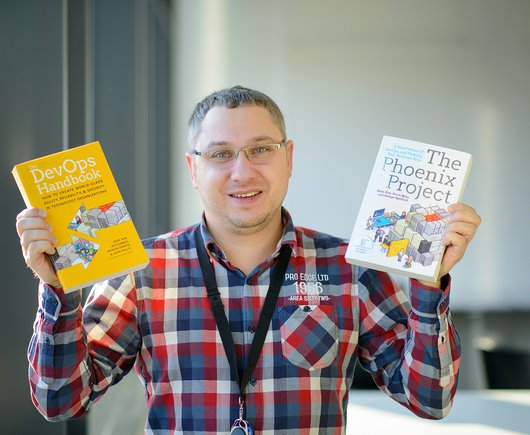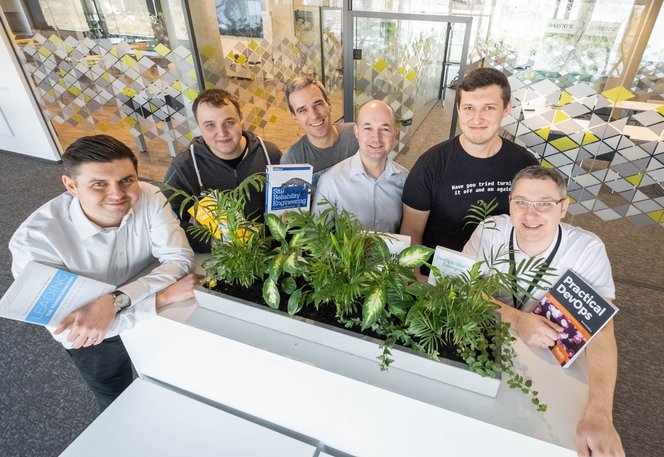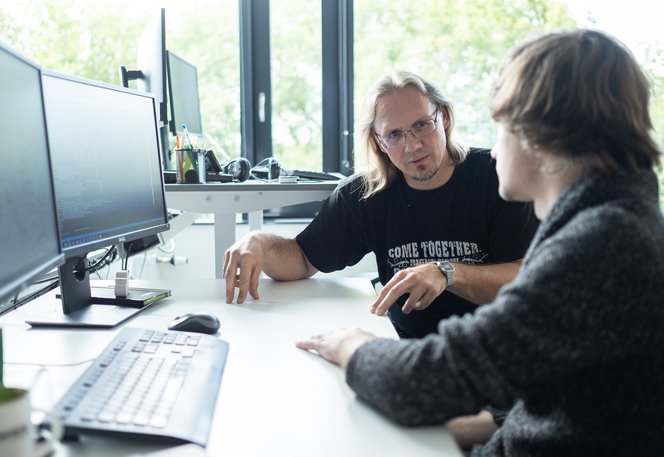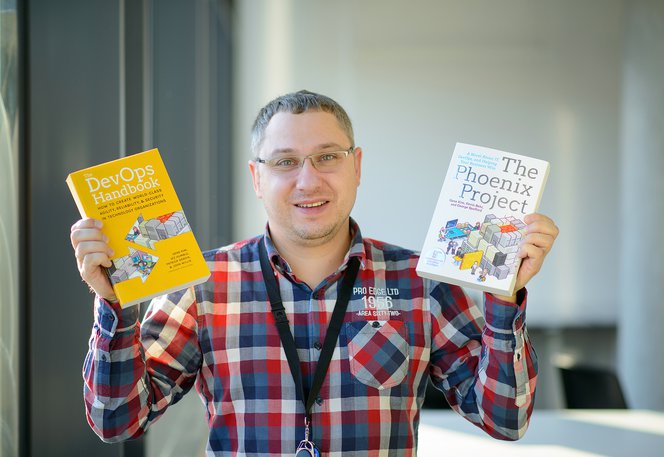What kind of knowledge and qualities a young specialist, who is wondering which IT field to choose, needs to have, so he/she could also think about the DevOps specialist's career?
I would say there are two parts that a person should acknowledge in himself /herself and develop. The first one is the technical part. You must have wide and great interests because DevOps automation can be applied to all of the platforms - from Linux to Windows. These are just tools that you need to be interested in and keep up with modern technology. I am not saying that it is necessary to concentrate on one specific tool, because I have no doubt that one company uses one type of automation tools and another company selects to use different tools. You just need to have a common knowledge and understanding of how automation works as well as be interested in best practices.
The second part stands for people’s qualities: not being afraid to ask and be willing to share information. It wasn't by chance that when working at Centric I launched the knowledge sharing sessions. Every month we all vote on what topic is the most relevant for us and a person who has accumulated the most knowledge on that topic prepare an hour-long presentation. During that hour, our colleague shares the knowledge and sometimes the sessions turn into a debate. Such practice is useful for all participants: the speakers and presenters are forced to purify the information they have in their heads and arrange it in a way that others would understand.
By the way, because of the same reason, it is very important to have junior (beginner) specialists at the company. The questions they ask - both logical and illogical - make experienced professionals think deeper and not only come up with clear answers but often discover something new for themselves as well as structure their own knowledge.
Does this mean that it is a bit early to look for a position in DevOps just after graduating from university, and more experience should be gained before that?
Definitely not. On the other hand, specialists working with DevOps should have a wide-ranging outlook, but this does not mean that young people cannot take this role right after the university. And here I have an excellent example: from the three students who joined Centric internship this spring, all remained in the company and one of them in the DevOps department. I can only bow my head in respect to my young colleague Jonas. He charmed me both as a very talented person and as a junior professional with great potential. It was impressive that while still being a student he knew more about some things than colleagues with much longer work experience. But not only that: Jonas had a great desire, enthusiasm and put a lot of effort, worked hard, thus proving that future role might not be determined by the field of study (Jonas studied internet informatics in Kaunas University of Technology) but by desire and interest.






